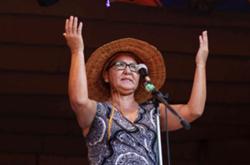Earlier this month, Google selected a collective of small, indie, digital-first outlets to manage the distribution of the ubiquitous search engine’s $100-million annual contribution to the Canadian media industry.
The deal comes after the Online News Act, formerly known as Bill C-18, made large tech platforms — namely Google and Meta — pay news publishers for the news content they host. Meta responded by blocking Canadian news links across Facebook and Instagram.
Google, after some bargaining, came to an agreement to distribute $100 million annually to various news outlets, indexed to inflation. They also achieved their demand to deal with only one single collective representing all broadcasters and publishers that want to take part in the deal. On June 7, they opted for a proposal put forth by the Canadian Journalism Collective to dole out the fund.
Two groups were vying for the role.
The non-profit coalition they chose, created to aid in the process of distributing Google’s fund, features representatives on its steering committee from outlets like Pivot, IndigiNews and Village Media.
The alternate proposal was from the Online News Media Collective, led by the CBC, the Canadian Association of Broadcasters and News Media Canada, which, according to Toronto Star vice-president of public and government relations Ryan Adam, encompasses about 95 per cent of the news media industry in Canada.
Some interpret the moment as a sign that the power centres of Canadian media are shifting in favour of these smaller, independent media outlets.
Others, including representatives from the rejected proposal, have expressed concerns of conflict of interest and lack of experience among the indie journalism collective to distribute the fund.
Jean La Rose of the CJC steering committee, who is also president of Dadan Sivunivut, said the CJC was not looking at the fund distribution job from the perspective of gaining power.
“There was a process meant to ensure smaller players, like [The Tyee], would be considered equally in the final distribution of the funds,” he said.
Jeff Elgie, CEO of Village Media, which owns and runs nearly 30 local news sites across Ontario, said he was initially surprised by Google’s decision to run with the CJC’s proposal.
“I think it certainly signals a moment in time where there’s enough independent publishers that are passionate about the industry, confident enough, to put their hand up,” he said. “It’d be reading too much into it to say that it’s any material, large-scale power shift.”
La Rose would not disclose details of the proposal but said it will be made public once the Canadian Radio-television and Telecommunications Commission reviews it and makes any needed amendments.
“Then we can hit the ground running to work with all the players to start distributing the funds and everything,” La Rose added.
Rolling out a plan
Some details around the distribution of the funds are already laid out in the Online News Act. The federal government set a cap of $7 million that the CBC can receive, and a maximum of $30 million for private broadcasters. The remaining $63 million will go toward newspapers and digital outlets. Small print and digital outlets can expect to receive about $17,000 per journalist they employ.
The act also required Google to put out an open call for news organizations to self-identify as eligible to take part in the fund and shared the final list of applicants.
The CJC will be responsible for reviewing eligible applicants and auditing the number of employees at each company, as well as distributing the funds in accordance with the act.
“There isn’t a lot of room for judgment,” said Elgie. “It really comes down to making sure that it's fair and transparent and that it operates efficiently, because at the end of the day, I think everyone wants the same thing, which is to move the money out to publishers as expediently as possible,” said Elgie.
When asked about Google’s decision, in a statement to The Tyee, the CBC said, “The objective of the legislation is to ensure that Canadian news organizations receive fair compensation for the content they invest in, which is currently being used to earn revenue for foreign digital companies.
“What is important is that this compensation flows to news organizations as quickly and fairly as possible.”
Concerns of conflict of interest, inexperience
Late last week, the Toronto Star and La Presse reported that Unifor, Canada’s largest private sector union, which represents over 10,000 journalists and media workers, was questioning the independence of the CJC.
Unifor noted half of the CJC’s representatives are from outlets that are clients of the chair of the group: Indiegraf CEO Erin Millar.
Indiegraf, an organization that helps launch independent and local news startups, was founded with financial support from Facebook and Google, noted La Presse, and the CJC’s independent board director Sadia Zaman is also the CEO of Inspirit Foundation, which helped finance Indiegraf.
“This organization needs to be rebuilt properly, including with a lawyer and an accountant, in order to manage $100 million in a professional manner,” News Media Canada CEO Paul Deegan told La Presse.
In a statement to The Tyee, Millar wrote, “Indiegraf is proud of our partner publishers who have demonstrated leadership and courage in proposing a vision for managing Google’s $100-million annual contribution.
“I have complete faith in the interim board’s ability to rapidly implement its plan which represents the full diversity of the news ecosystem.”
Millar also highlighted that thousands of news organizations around the world, including major players in Canada, have received funding from the Google News Initiative and cited a National Post report.
In the Star article, Millar also emphasized the CJC board members are only for the interim. Legacy media players will be invited to be included on the board, the Star reported.
A group of Canadian news publishers also expressed concern earlier this month and demanded the CRTC implement further regulations for the fund distribution such as a tighter definition on full-time employed journalists and a maximum cap to the administrative fee that the CJC can collect, at 0.5 per cent.
The Tyee did not hear back from other Online News Media Collective representatives in time for publication.
Star public relations vice-president Adam told the National Post he found it “frankly fairly perplexing” that Google chose an organization “that has relatively little experience in this area,” citing concerns around bias, transparency and timing of the payments.
“It’s unfounded,” said Elgie when asked about these concerns. “The fact that this group will be focused on transparency is very important. There is no difference in that it is industry groups that will be pulled together in a proper and fair governance structure.”
Was the Online News Act worth it?
Elgie said it’s a complicated question.
Prior to the act, many organizations, including Village Media, had content licensing deals with Meta and Google, which have been nullified due to the legislation. Any money coming in from this new Google deal would result in about the same revenue they had before — or less, said Elgie.
But this time around, they have lost their Meta traffic, too, he noted.
“The potential winners are all the smaller publishers who didn’t get any money before, and now they’ll get presumably somewhere in the range of $15,000 to $20,000 per journalist, which is great,” said Elgie, adding they should have been able to get that money prior to the act.
“But they also have lost all their Meta traffic,” he added.
“You’ll see some will be happy about it because of the money and some will say, ‘I just wish things could go back to the way they were before. And I want my Facebook traffic back.’”
“The net outcome for the industry is we are worse off than we were before this thing even existed.”
La Rose is one of those individuals who sees a positive net outcome of the Online News Act.
“Was it worth it from our end? Absolutely,” said La Rose, who also chairs the board of directors of First Peoples Radio.
“All I can do is speak for myself. From the Indigenous perspective, we feel that the act will provide us an opportunity and to be able to support our small, very budding industry to ensure that there is an opportunity for Canadians to hear us.”
While many news consumers online have found creative ways to share news content online in spite of the Meta news ban, Elgie said he doesn’t have faith in audiences being able to seek out news sources.
Some outlets have reported traffic tanking and have gone on a publishing hiatus.
There are two sections of local news consumers, he said: the well-educated audience that is news-seeking, and the “very passive, secondary audience” who doesn’t seek news every day and isn’t necessarily informed and engaged.
That’s why Village Media has moved “all of [its] investment into newsletter acquisition” and is also in the beta phase of a new social platform of its own — something it began developing in anticipation of the Online News Act coming into effect — in order to “win back some of that engagement” on a platform that they are in control of.
But as Reuters reported in its most recent Digital News Report, news avoidance and distrust are once again on the rise.
“I think the industry has to retool itself in order to survive.”
This article is part of an occasional series on how Canadian media became intertwined with major tech platforms, and how it’s affecting Canadians and their access to journalism.
If you want to stay in direct contact with The Tyee, sign up for our free newsletter. ![]()
Read more: Federal Politics, Media, Science + Tech


















Tyee Commenting Guidelines
Comments that violate guidelines risk being deleted, and violations may result in a temporary or permanent user ban. Maintain the spirit of good conversation to stay in the discussion and be patient with moderators. Comments are reviewed regularly but not in real time.
Do:
Do not: